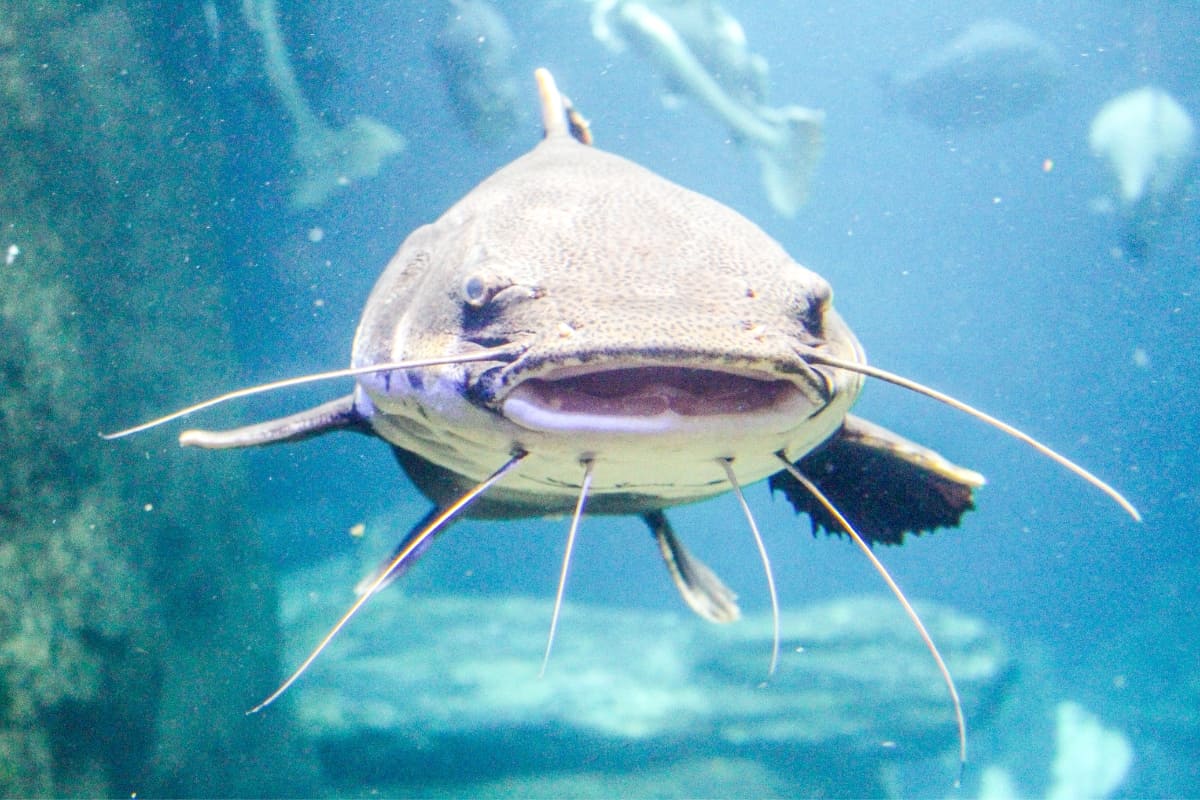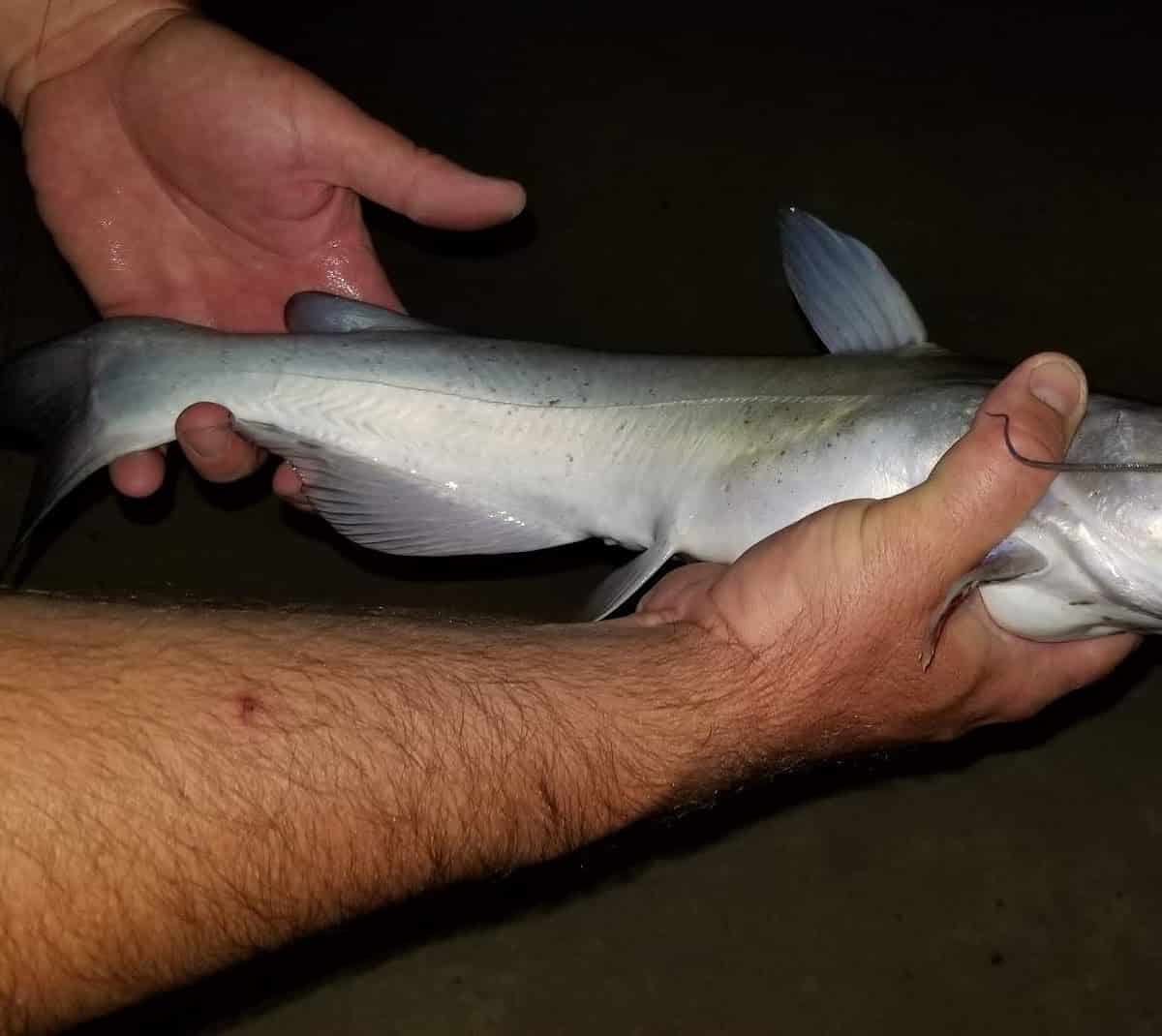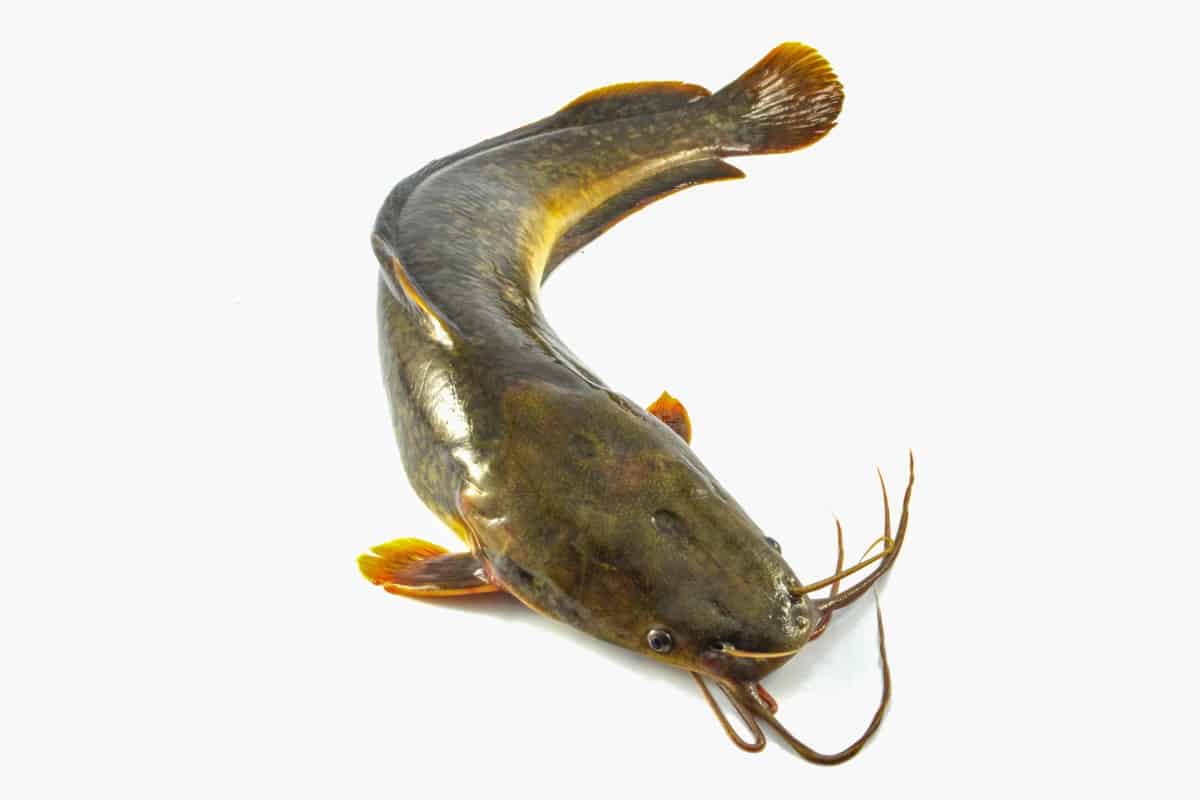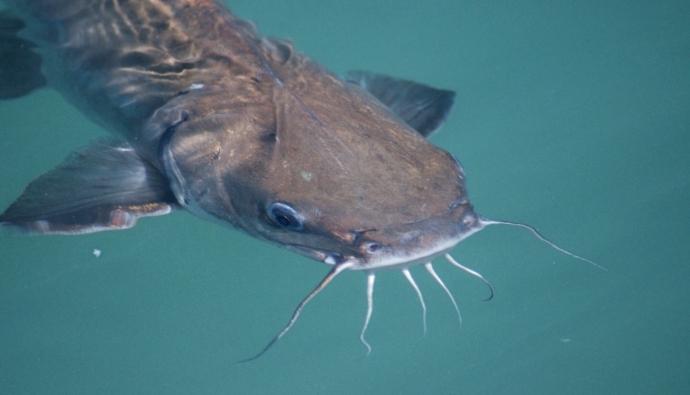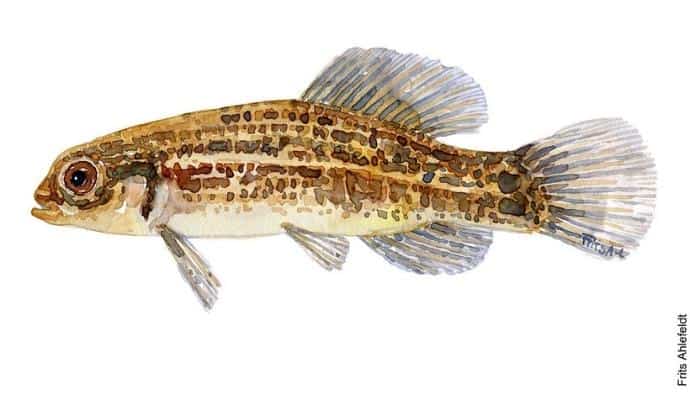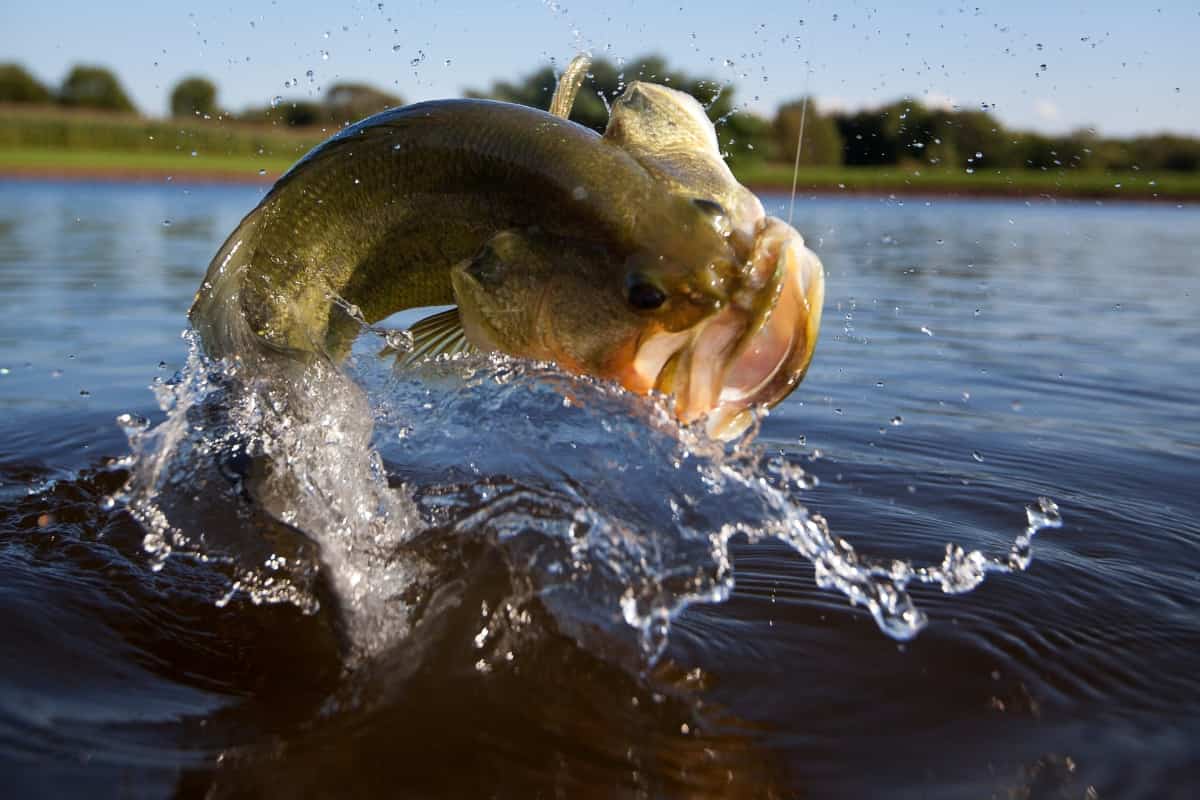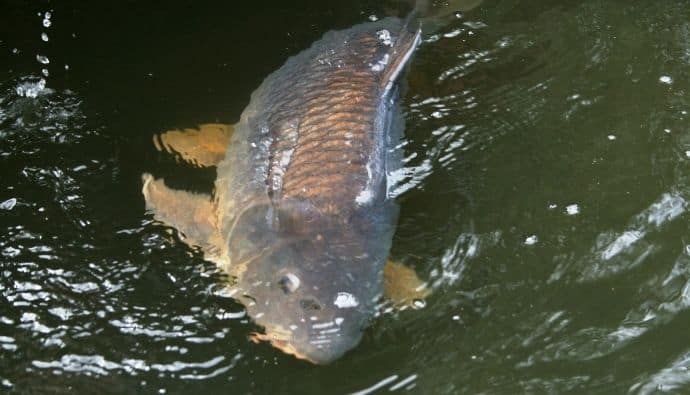Have you ever wondered why catfish croak? Understanding this unique behavior can provide fascinating insights into the world of catfish and enhance your knowledge of these intriguing creatures. In this article, we cover several reasons why catfish croak, grunt, and make other weird sounds.
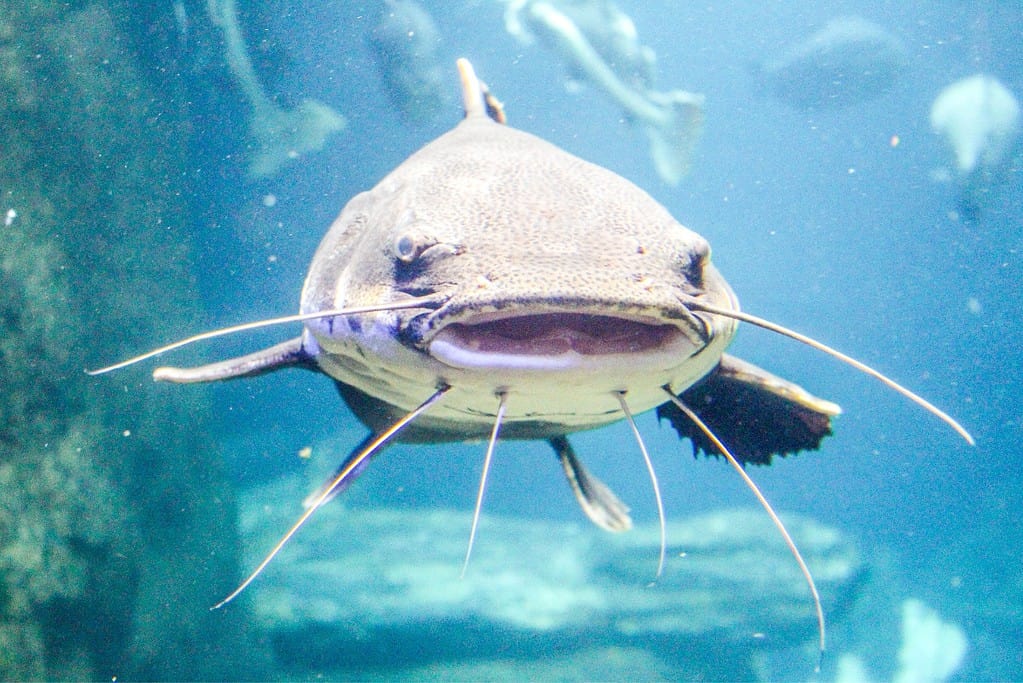
The Short Answer
Catfish croak as a defense mechanism when they perceive a threat or are in distress. The croaking sound is created by the catfish grinding their pectoral girdle against their pectoral spine when they move their pectoral fins forward quickly. This distinctive noise is akin to a subdued frog’s croak, with a deep, resonant quality that can be heard underwater. The croak serves as a warning to potential predators, signaling that the catfish is aware of their presence and is ready to defend itself. The duration of the croak varies, usually ending when the catfish no longer feels threatened. It’s an intriguing aspect of catfish behavior, revealing the resourcefulness of these creatures in their underwater world.
The Long Answer

So why exactly do catfish croak?
You see, catfish croak primarily as a way of warning off other animals and predators.
They’re like the underwater version of a rattlesnake shaking its tail. When they sense danger nearby, they let out a croak to say, “Back off, buddy! I’m bigger and tougher than I look!” This is their form of disturbance call, a sound made by an animal when it feels threatened.
You might be wondering how croaking sounds could scare off predators underwater.
After all, it’s not like the predators can see a big, scary catfish face making the noise.
But remember, sound travels faster in water than in air. So that croak? It comes across loud and clear, echoing through the water and alerting predators that there’s a big, possibly not-so-tasty catfish in the vicinity.
So the next time you hear a catfish croak and other weird noises, remember it’s their way of putting up their dukes, ready to stand their ground, alerting predators of their sharp spines.
It’s a little slice of the underwater drama playing out beneath the surface, a testament to the catfish’s survival strategy. Quite clever.
How Long Do Catfish Croak For?
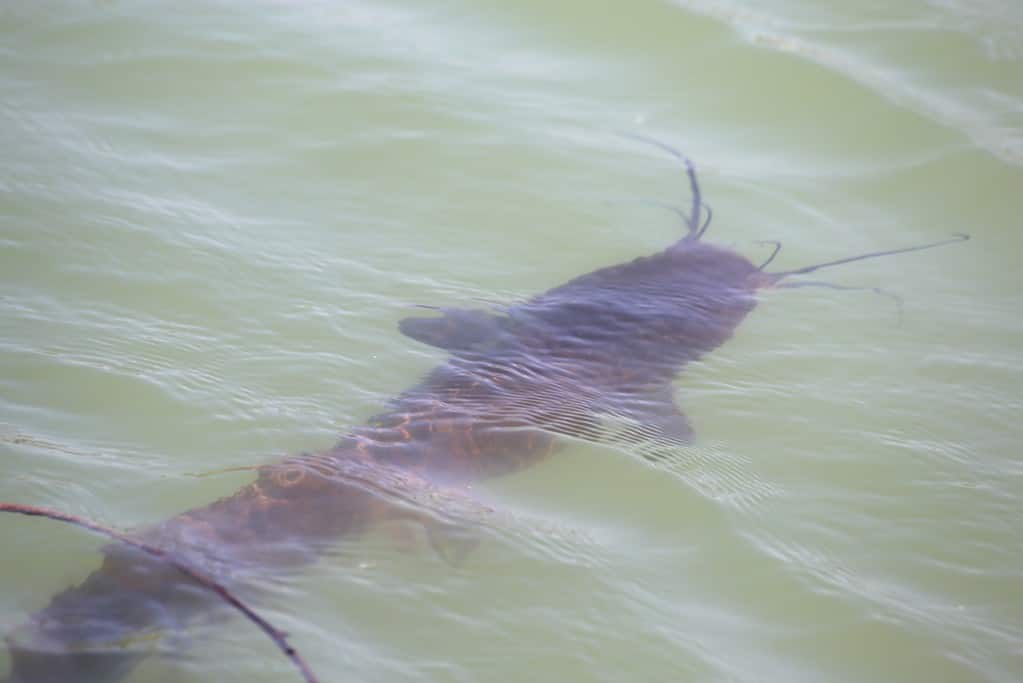
The chorus of croaking catfish is an exciting symphony to tune into, but have you ever wondered how long these aquatic vocalists hold their notes?
If you have, you’re in for an interesting tidbit of catfish trivia!
Like a trumpet player holding a note, a catfish will continue to croak as long as it feels threatened. The croaking might be brief, just a quick “hey, back off!” if the threat is minor. But when the danger seems more serious, our little catfish friend will hold its croak, almost as if it’s singing a drawn-out underwater opera!
However, a catfish isn’t going to croak indefinitely.
They’ll stop their serenade as soon as the perceived danger has passed. The duration of a catfish croak is its own personal “all-clear” signal.
When the coast is clear, the concert ends, and the fish resumes its quiet, daily life, awaiting the next time it needs to bring out its unique defense. So, the catfish croaking duration isn’t set to a timer, it’s flexible and completely based on the catfish’s sense of security.
The next time you hear a croak, remember, that’s a catfish putting all its energy into saying, “I’m here, I’m tough, and you don’t want to mess with me!” until it believes it’s safe again.
Isn’t that a fun piece of knowledge to share on your next fishing trip?
How Do Catfish Make A Croaking Noise?
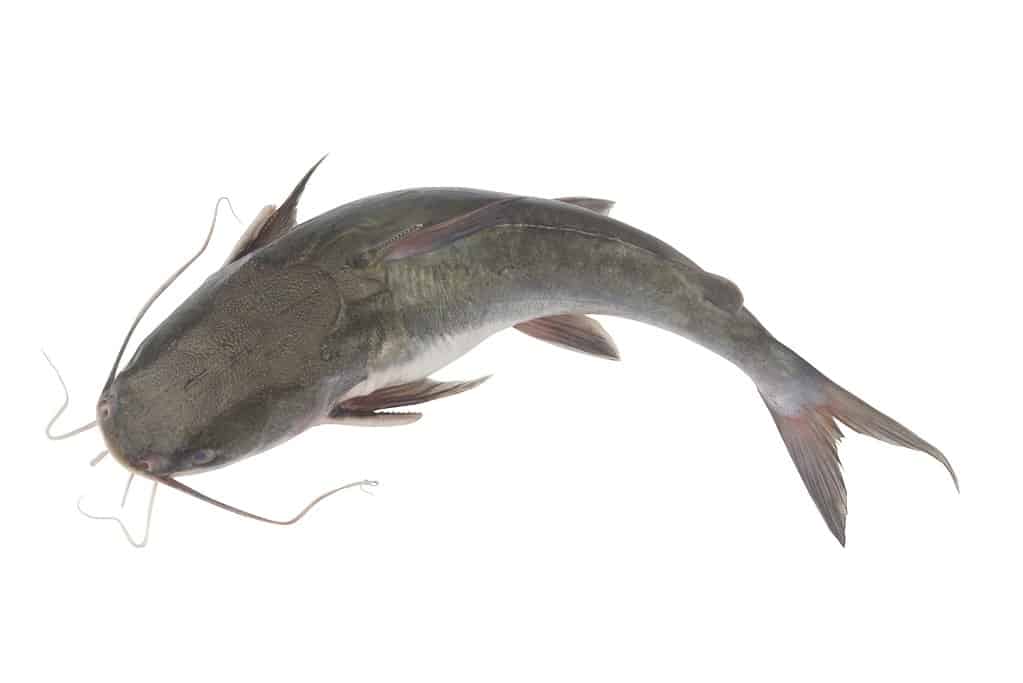
Are you ready for a fascinating trip into the sound studio of a catfish?
Let’s uncover the secret behind their underwater croak. Unlike us, catfish don’t have vocal cords to produce sound. So, how do they manage to create that unique croak?
While it might seem like a catfish can vocalize using its air-filled swim bladder, it’s actually not.
Well, our clever catfish friends have figured out an innovative way.
Unlike other fish, they use their bodies as an instrument! Specifically, they use their pectoral girdle, which is a part of their skeleton that supports their fins, and their pectoral spine, a sharp fin bone that catfish can lock into place.
Here’s how it works.
Imagine you’re holding a grooved stick, and you run another stick along the grooves.
That’s essentially what a catfish does. It grinds its pectoral girdle against the spine, and voila, we hear that distinctive croak! It’s like the catfish is playing a raspy violin using parts of its own body.
But there’s a little more to the story. This musical mechanism is activated when a catfish quickly flicks its fin forward. This motion, similar to a swift wave of your hand, triggers the grinding of the pectoral girdle against the spine and produces the croaking sound.
So, the next time you hear a catfish croak, remember the extraordinary effort it’s making.
Simply put, the catfish moves its pectoral fins back and forth so that the girdle rubs against the spine.
It’s like a musician playing a gritty tune on the world’s most natural instrument – its own body! Isn’t the underwater world full of amazing surprises?
Read also: Do Catfish Bite in Cold Weather?
What Does Catfish Croaking Sound Like?
Ever heard the call of a frog on a warm summer night?
A catfish’s croaking sound is a bit similar, but there’s a certain something that makes it distinct. Imagine you’re sitting by a quiet pond, listening to the gentle rustle of reeds and the distant hooting of an owl. Suddenly, from beneath the water’s surface, you hear a sound.
It’s not quite a frog croak; it’s softer, subtler, and more mysterious. It’s our friend, the catfish, adding its unique voice to the night’s chorus.
Unlike the frog’s loud and attention-grabbing croak, the catfish’s croaking sound is more of an underwater murmur. It’s a lower, grumbling croak, like a sleepy frog that’s not quite ready to wake up. The sound is deep and resonates through the water, a sonic bubble of warning to any potential threats lurking nearby.
While it’s challenging to put into words exactly what a catfish’s croak sounds like, this should give you a pretty good idea. But the best way to understand it is to hear it for yourself.
So the next time you’re out by a pond or river, lend an ear to the water. You might just catch the croak of a catfish, a sound as fascinating as the creature making it. And when you do, you’ll have another cool catfish fact to share with your fellow fishing enthusiasts.
When Do Catfish Croak?
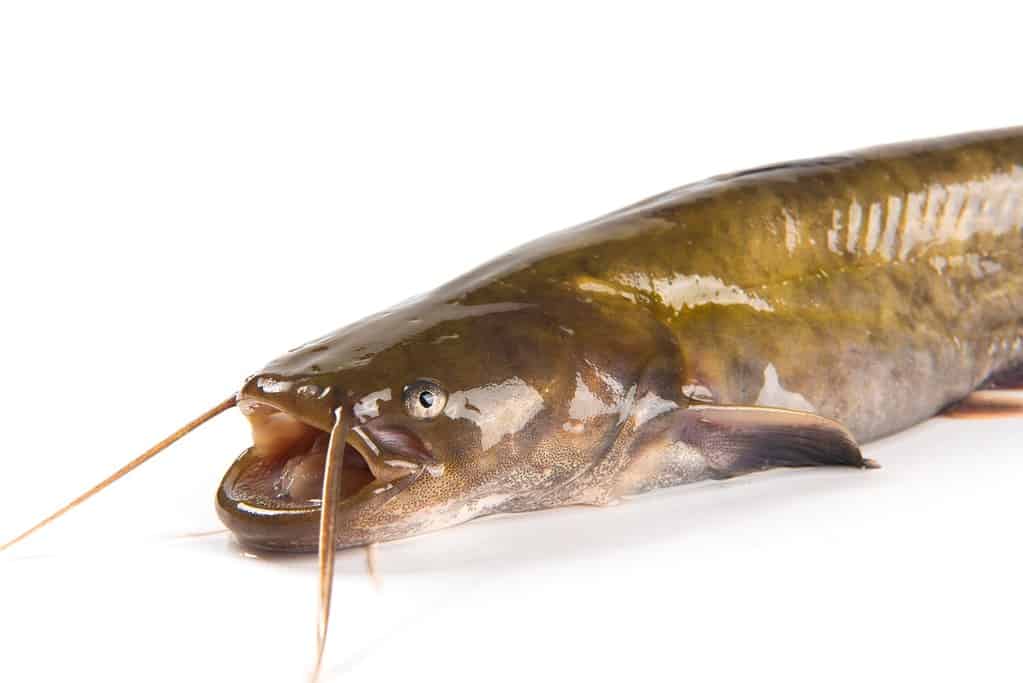
Understanding when a catfish croaks is just as important as understanding why.
So let’s dive into the specific situations that trigger a catfish to unleash its unique croak. You’ll notice a pattern here – catfish croaks when they need to send a message.
One of the primary reasons catfish croaks is when they perceive a threat, say, a bigger fish swimming a little too close for comfort or a fishing net suddenly encroaching their space.
When something invades their quiet world, their instinct kicks in, and they respond with a resounding croak. It’s a way of saying, “Hey, I’m here, and I won’t be an easy meal!”
But the croaking noise doesn’t stop at warnings. If a catfish is in distress, say, it’s been caught on a fishing line, the croaking noise can intensify.
It’s the fish’s way of expressing its discomfort and alarm. So, if you’re ever reeling in a catfish and hear a croak, you’ll know it’s not a happy camper.
Lastly, if a catfish is in the middle of being attacked, the croaking sounds will be its last-ditch attempt at survival. It’s the fish equivalent of yelling, “Back off!” at the top of their lungs.
In essence, catfish use their croaking sound as a universal distress signal. It’s their primary method of communicating that they’re feeling threatened or stressed.
So while a catfish’s croak can add a touch of intrigue to a quiet fishing trip, remember that it’s the fish’s way of dealing with a dangerous situation. Isn’t it amazing how much can be conveyed through a simple croak?
The Verdict
In conclusion, catfish croak as a defense mechanism when they perceive a threat or are in distress. This unique behavior reveals the resourcefulness of these creatures in their underwater world.
We hope you’ve enjoyed diving into the underwater world of catfish and their fascinating croaking sounds. If you found this article interesting, we encourage you to share it on your social media platforms. Your friends might also be intrigued by the mysterious sounds of the catfish!
And don’t stop here. We have a wealth of articles on various fishing topics that you might find equally captivating. Whether you’re a seasoned angler or a curious beginner, there’s always something new to learn at Cast & Spear. So, why not explore a little more? You never know what other underwater secrets you might uncover!
Remember, every share, like, and comment helps us bring you more quality content. So, go ahead, dive in, and keep the conversation going. Happy reading and tight lines!





 Facebook
Facebook YouTube
YouTube